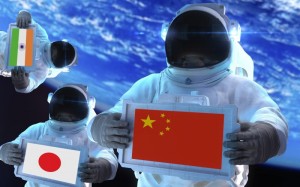It’s On: Asia’s New Space Race
Some might be surprised about China’s strategies when it comes to space explorations which have come a long way. Since 1980s, Beijing has slowly creating a scope of scientific, business and martial space power that presently give way to participate in other Asian countries even with the technological advancements of Japan, and at the same time showing an asymmetric warning to the United States. For the past ten years, China has introduced a spacecraft that plot the moon, organized a lunar traveller expedition and move around a little space camp. It is constructing a new starter location in Hainan Island with plans for a huge –left lifter.
At the geographical degree, China and Japan have contributed competitor groups to “organize” other small nations in this extensive competition and tie them to their side. China already established Asia Pacific Space Cooperation Organization (APSCO), which include Bangladesh, Thailand, and Mongolia. There are advantages that APSCO holds like entry to Chines space orientation, ground camps and satellite improvement projects.
In a national level, the technological pioneer in Asia like Japan has also different new projects. During 2008 the Japanese Diet rebellious laws that stops the foregoing prohibition on military activities in space. Although Japan got high market price of returning to normal state after they encountered the 2011 earthquake, tsunami, and Fukushima nuclear disaster, Tokyo has multiple loss on its space projects with a new strategies in high-standing science and human space travel. The H-II Transfer Vehicle space vehicle of Japan is currently available to give only non-U.S. and non-Russian assistance
The Japan Aerospace Exploration Agency in traduce the aspiring Hayabusa 2 operation, which has a goal to place spacecraft design on an asteroid by 2018 and then bring back the soil samples here on Earth. The Japanese leaders see an impact between their space projects and the economic capacity to send improved technologies. They are also threatened by China’s space exploration achievements that it might place their technological status into uncertainty. Therefore, they accept the fact that the space exploration activities of China cannot strike them.
J. Moltz



 Posted in
Posted in 


